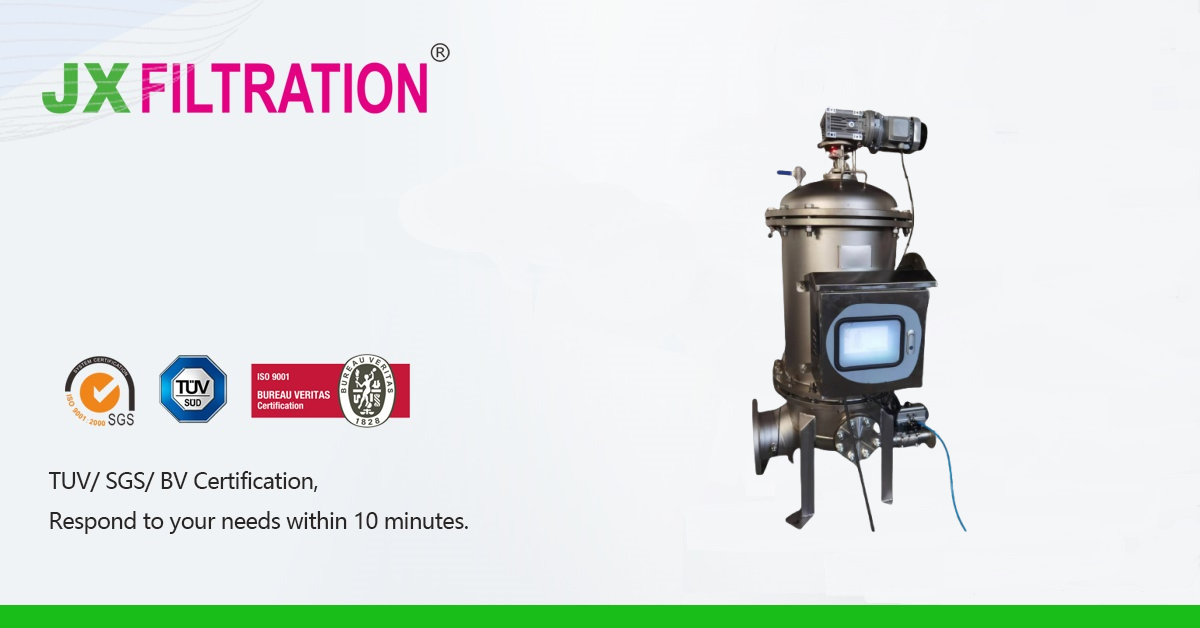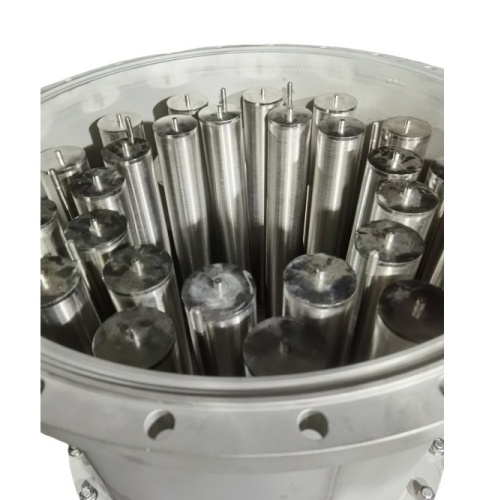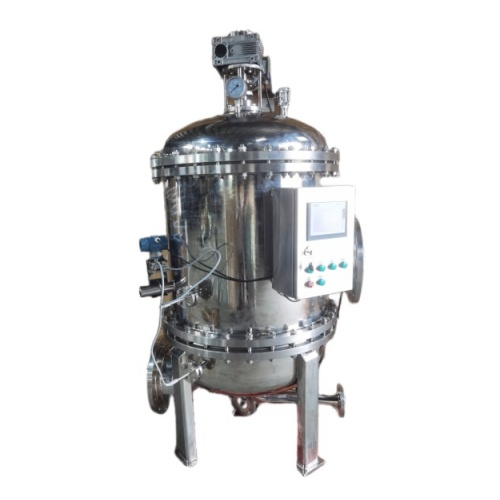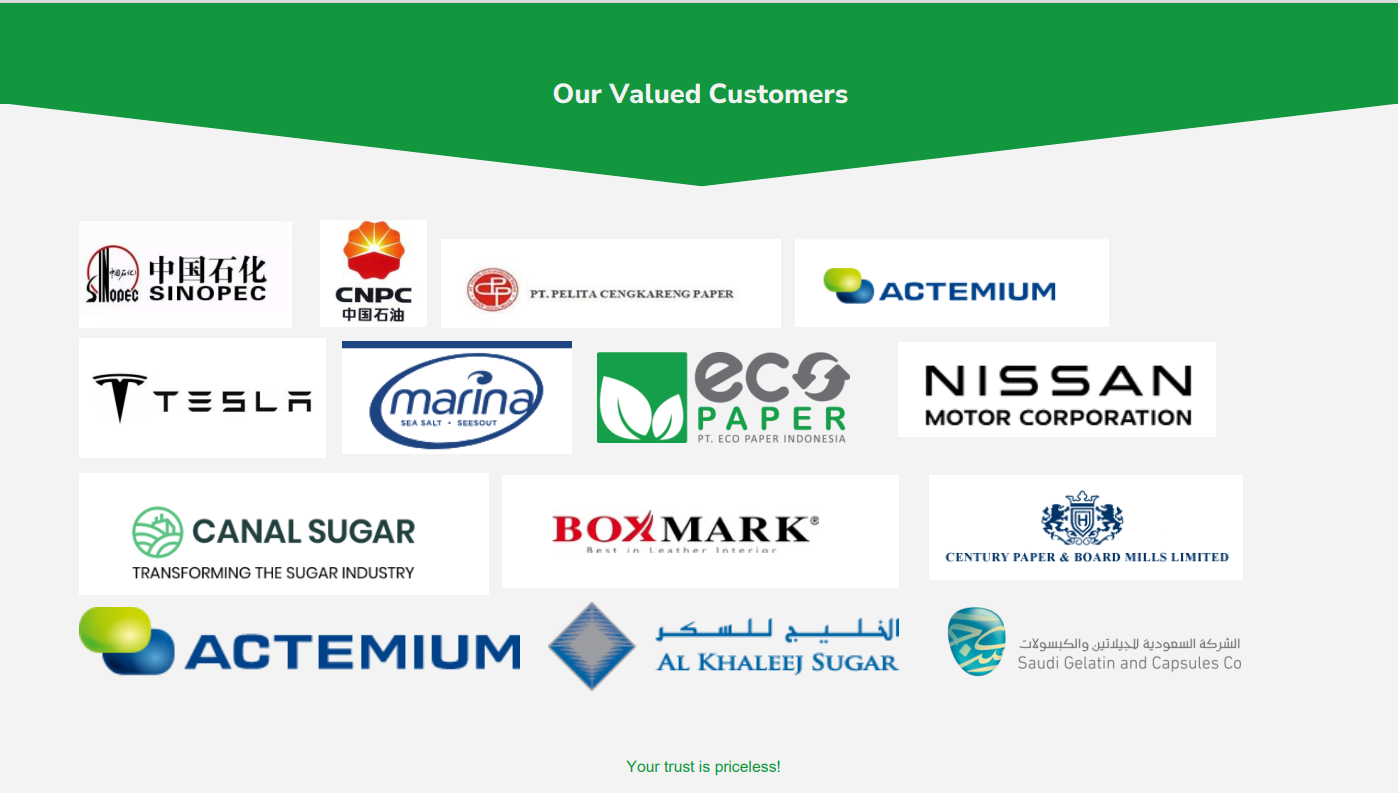What's the Advantage of Backwash Filters in Handling Sticky Materials?
Handling sticky materials (such as paints, inks, adhesives, grease, syrups, resins, and heavy petroleum fractions) is a challenge in many industrial filtration processes. Automatic backwash filters with their unique operating mechanism, offer unparalleled advantages over traditional filters.
The following is a detailed breakdown of their core advantages.

1. Efficient and Thorough Cleaning
For sticky materials, simple scraping or positive pressure purging often fails to completely remove the filter cake tightly adhered to the filter element surface. Backwashing, by redirecting the flow and applying a brief, high-pressure force (usually using a cleaning fluid or gas) from the inside of the filter element outward, effectively "peels" the sticky clogged material and restores the filter element to near-initial filtration capacity. This cleaning method is particularly effective for sticky, pasty residues.
2. Fully Automatic Operation, No Manual Intervention Required
When handling sticky materials, filters clog very quickly. Using bag or cartridge filters requires frequent downtime, equipment opening, and filter media replacement, a time-consuming and labor-intensive process that may also expose the filter element to hazardous or toxic materials. Backwash filters automatically initiate the cleaning process based on pressure differential or a set timer. The entire process is completed within seconds to over ten seconds, without interrupting the main process, significantly improving production efficiency and automation.
3. Extremely Long Filter Element Life
Traditional replaceable filter media (such as filter bags and filter cartridges) quickly degrade under the influence of sticky materials, becoming expensive consumables. Backwash filters typically use durable metal sintered or woven mesh as filter elements. Their gentle yet effective backwashing mechanism avoids physical damage to the filter element. A high-quality filter element can typically last for years or even longer, significantly reducing replacement and disposal costs.
4. Maintaining Stable Process Parameters and Product Quality
When filtering sticky materials, rapid cake accumulation can cause a sharp increase in the inlet and outlet pressure differential and a decrease in flow rate, impacting the stability of downstream production processes. Backwash filters automatically clean themselves when the pressure differential reaches the set value, maintaining system pressure differential and flow rate within a very stable range, ensuring process continuity and batch-to-batch consistency.
5. Reduced Material Waste
When replacing filter bags or filter elements, large amounts of valuable viscous materials can remain in pipes and equipment, resulting in waste. Backwash filters typically operate in an inline, fully enclosed system. The amount of waste liquid discharged during the cleaning process is minimal, and the design allows for the diversion of waste liquid containing high concentrations of impurities into a separate collection tank, minimizing the loss of primary process materials. This is particularly important for high-value materials such as high-end coatings and pharmaceutical intermediates.
6. Safe and Environmentally Friendly Operations
When handling viscous, flammable, toxic, or pungent materials, frequent opening and replacement of filter media poses a significant safety and health hazard to operators. As a completely enclosed system, backwash filters eliminate direct contact between operators and hazardous materials.

For handling viscous materials, the advantages of automatic backwash filters are systemic. They are more than just a filtration device; they are a process solution that improves production efficiency, reduces overall costs, and ensures safe and stable production.

Any requirements, contact us now!
Nina
Email: nina@filtrationchina.com
Mobile/Whatsapp/WeChat:+86 172 6957 1060

